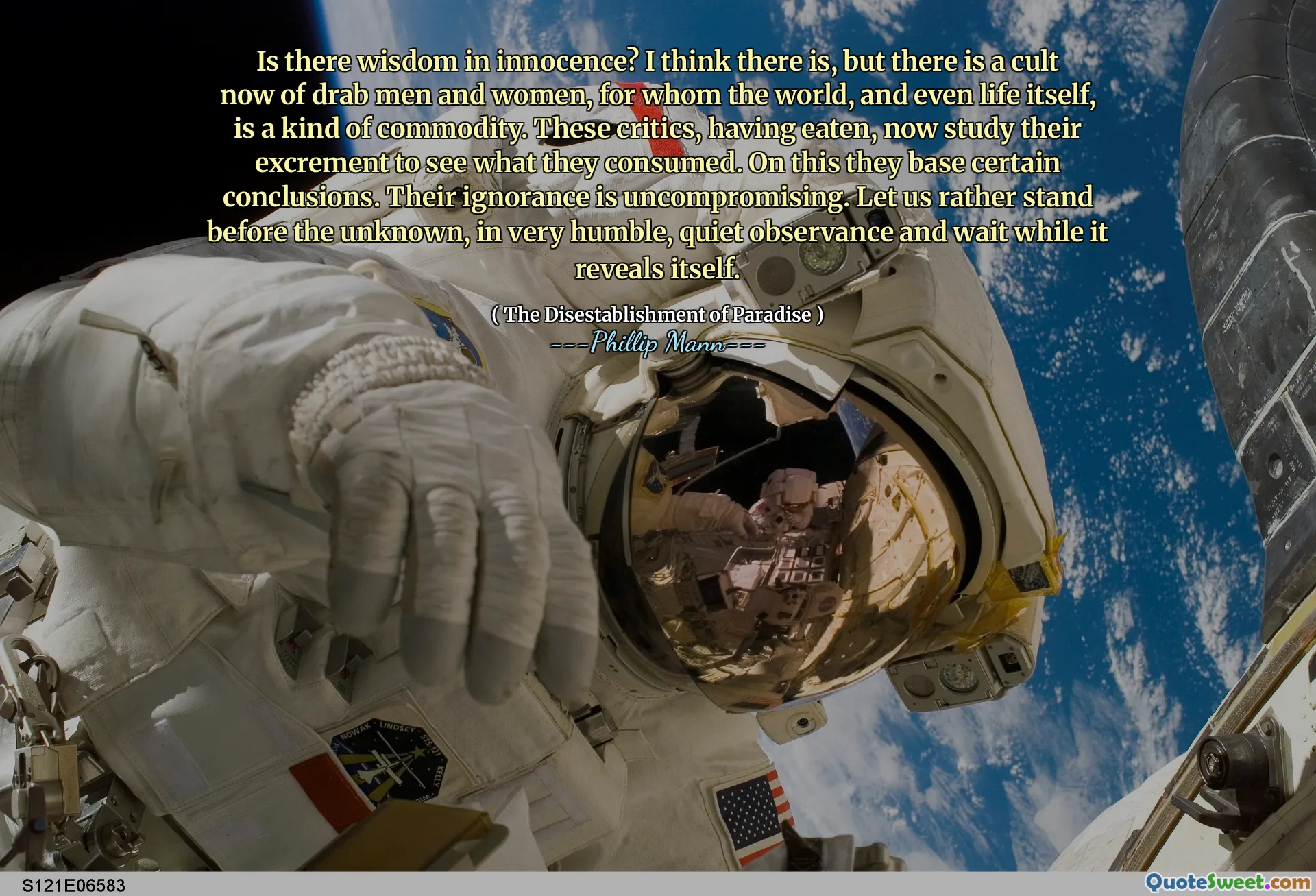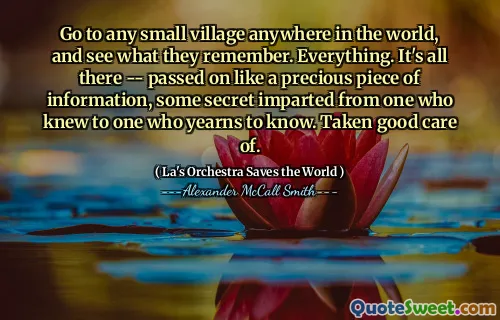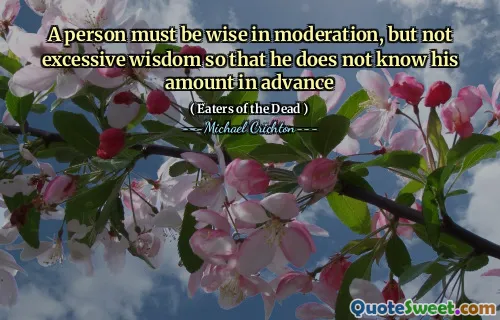
Is there wisdom in innocence? I think there is, but there is a cult now of drab men and women, for whom the world, and even life itself, is a kind of commodity. These critics, having eaten, now study their excrement to see what they consumed. On this they base certain conclusions. Their ignorance is uncompromising. Let us rather stand before the unknown, in very humble, quiet observance and wait while it reveals itself.
This passage invites a profound contemplation on the nature of wisdom, innocence, and the current societal obsession with skepticism and critique. In a time where many are eager to analyze, dissect, and judge every aspect of life, the author suggests that true understanding may lie in humility and patient observation of the unknown. The analogy of critics eating and then studying their waste symbolizes the fruitless pursuit of superficial analysis—fixating on what has already been consumed, rather than seeking genuine insight from the mysteries beyond our grasp. Innocence, often misjudged or undervalued, is presented here as a source of wisdom, emphasizing that approaching the world with humility and openness can be far more fruitful than cynical critique. The depiction of individuals treating life as a commodity reflects an alarming materialism and loss of wonder, which the author urges us to transcend by adopting a humble stance before the unknown. By doing so, we preserve a capacity for awe, learning, and genuine insight that requires patience and reverence rather than immediate judgment. This perspective encourages rejecting overwrought analysis in favor of quiet observance, embracing life's mysteries with humility and respect rather than arrogance and haste. Such an attitude can lead to deeper understanding, personal growth, and perhaps even a more harmonious relationship with the world around us. It advocates for a return to simplicity and innocence as pathways toward wisdom, countering the modern tendency to value knowledge solely through critique and skepticism.






